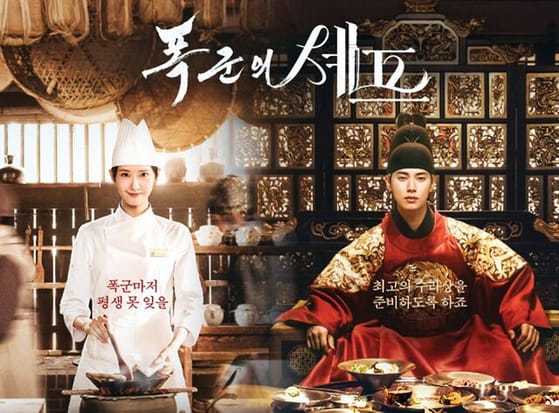Beyond "We": Understanding Korea's "Uri" - The Cultural Key to Korean Identity
The Translation That Shocks Foreigners
Imagine you're learning Korean and hear someone say "우리 마누라" (uri manura). Your translation app tells you this means "our wife," and suddenly you're wondering: Do Koreans share wives? Is this some kind of communal marriage system?
This confusion happens to virtually every foreigner learning Korean, and it reveals one of the most profound cultural misunderstandings between Western and Korean worldviews. The Korean word "우리" (uri) is consistently mistranslated as "we" or "our" in English, but this translation misses the essence of what makes Korean culture unique.
The Fence That Changes Everything
To understand "uri," you need to understand its deeper meaning: 울타리 (ultari) - fence or boundary. The concept of "uri" isn't just about multiple people; it's about people who exist within the same protective boundary, forming a unified whole rather than a collection of individuals.
When Koreans say:
- 우리 집 (uri jib) - "our house"
- 우리 엄마 (uri eomma) - "our mom"
- 우리 차 (uri cha) - "our car"
- 우리 마누라 (uri manura) - "our wife"
- 우리 나라 (uri nara) - "our country"
They're not describing shared ownership in the Western sense. They're expressing that these people, objects, and concepts exist within their emotional and social boundary - their "ultari."
The Fundamental Difference: Collection vs. Unity
The Western "We": A Collection of Individuals
In English, "we" represents a group where individual identity remains distinct:
- "We went to the store" = John + Mary + Tom went to the store
- Each person maintains their separate identity within the group
- Individual autonomy is preserved even in collective action
The Korean "Uri": Unified Within Boundaries
In Korean, "uri" represents organic unity within shared boundaries:
- "우리가 가게에 갔어" = We (as one unit within our fence) went to the store
- Individual boundaries dissolve within the group identity
- The collective identity transcends individual autonomy
Why Koreans Don't Say "My Country"
The most telling example is how Koreans refer to their nation. While Americans naturally say "my country," Koreans say "우리 나라" (uri nara) - "our country." This isn't political correctness or modesty; it reflects a fundamental worldview where:
- Individual ownership of abstract concepts feels inappropriate
- National identity is inherently communal
- The country belongs to everyone within the cultural fence
This linguistic choice reveals why Korean society emphasizes group harmony, consensus-building, and collective responsibility in ways that often puzzle Western individualists.
The "Uri" Mindset in Daily Life
Family Relationships
When a Korean says "우리 엄마" (our mom) to a stranger, they're not suggesting the stranger shares their mother. They're expressing that within their family fence, individual possessiveness dissolves. The mother belongs to the family unit, not to any individual member.
Workplace Culture
Korean companies often feel more like extended families than business organizations because of the "uri" mindset:
- "우리 회사" (uri hoesa) - "our company" (not just "the company I work for")
- Employees are within the company's fence, sharing collective success and failure
- Individual achievement is less important than group harmony and success
Social Relationships
Even in friendships, Koreans might say "우리 친구" (uri chingu) when introducing someone, emphasizing that friendship creates a shared boundary rather than just a mutual relationship.
The Cultural Implications for Foreign Visitors
Understanding "uri" is crucial for anyone wanting to truly comprehend Korean culture:
Business Relationships
- Building relationships (관계 형성) often means being invited "inside the fence"
- Once you're part of someone's "uri," expectations and obligations change dramatically
- Betraying the "uri" is more serious than breaking individual agreements
Social Integration
- Foreigners who understand and respect "uri" boundaries integrate more successfully
- Attempts to maintain strong individual boundaries can be seen as rejection of Korean social fabric
- Success in Korean society often means finding your place within various "uri" circles
Educational Settings
- Korean schools emphasize group projects and collective responsibility
- Individual excellence that disrupts group harmony may be discouraged
- "Uri ban" (our class) creates stronger bonds than typical Western classroom dynamics
Modern Korea: "Uri" in Transition
As Korea globalizes, the "uri" concept faces interesting challenges:
Digital Age Adaptations
- Social media creates new "virtual fences" for Korean users
- Online communities use "uri" language to create digital boundaries
- Gaming culture often emphasizes team identity over individual achievement
International Relationships
- Korean companies struggle with individual performance metrics
- International partnerships require translating between "uri" and "individual" mindsets
- K-pop fandoms create global "uri" communities that transcend national boundaries
Generational Changes
- Younger Koreans balance "uri" traditions with individual aspirations
- Some contexts see increased use of "나의" (my) instead of "우리"
- The concept evolves rather than disappears
Why This Matters for Understanding K-Culture
The "uri" concept explains numerous aspects of Korean culture that confuse outsiders:
- Why Korean families seem "enmeshed" by Western standards
- How Korean companies can demand such loyalty from employees
- Why group consensus takes precedence over individual opinions
- How Korean society maintains such strong social cohesion
- Why Koreans excel at team-based activities and sports
Lost in Translation: The Deeper Problem
The persistent mistranslation of "uri" as "we/our" represents a broader issue in cross-cultural communication. When we force Korean concepts into English grammatical structures, we lose the cultural DNA that makes Korean society unique.
Understanding "uri" means recognizing that:
- Language shapes worldview more than we realize
- Direct translation often obscures cultural meaning
- Korean collectivism isn't just political - it's linguistic and philosophical
- Individual and collective identity can coexist differently across cultures
Conclusion: Entering the Korean Fence
The next time you hear a Korean person say "우리 마누라" (our wife) or "우리 나라" (our country), remember: they're not describing shared ownership. They're expressing a worldview where individual identity finds meaning within collective boundaries - where the fence doesn't separate "us" from "them," but creates a space where "I" becomes "we" becomes "one."
For foreigners seeking to understand Korea, learning to see through the "uri" lens isn't just about language - it's about understanding how millions of people organize their emotional, social, and cultural lives around the beautiful concept of unity within boundaries.
After all, in Korean culture, the most important relationships aren't between individuals - they're between individuals and the "uri" that gives their lives meaning.
Ready to dive deeper into K-culture? Understanding "uri" is just the beginning of appreciating how language shapes Korean social reality.

